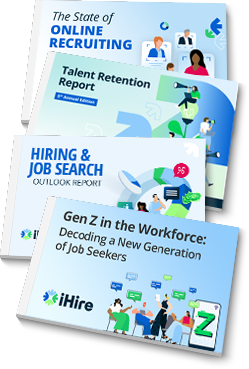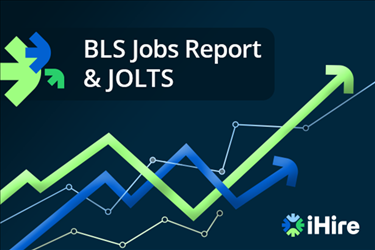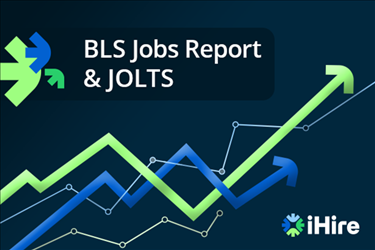- Employer Resources
- |
- Last Updated: April 08, 2025

9 Nursing Industry Trends You Should Know for Hiring in 2025
The healthcare industry is evolving rapidly, and the demand for skilled nurses continues to grow. As we move into the second half of 2025, staying ahead of nursing industry trends is crucial for employers looking to hire a nurse in a competitive market. Understanding these trends will help you refine your nurse recruitment strategies and ensure your healthcare facility attracts and retains top talent.
1. The Nursing Shortage Continues
One of the most pressing nursing industry trends is the ongoing nurse shortage. With an aging workforce, increased patient demands, and burnout rates at an all-time high, healthcare employers must adapt their nurse hiring strategies to remain competitive.
Key Resources & Strategies:
- Increase investment in retention programs to prevent turnover.
- Offer competitive salaries and comprehensive benefits.
- Develop stronger relationships with nursing schools to create a pipeline for new graduates.
- Focus on workplace culture and work-life balance to attract and retain nurses.
Addressing the nursing shortage requires proactive solutions. By focusing on nurse recruitment, retention, and workplace satisfaction, employers can mitigate the effects of the shortage and build a more resilient workforce.
2. Technology’s Role in Nurse Hiring
Technology is playing a larger role in nurse recruitment, from AI-driven hiring platforms to telehealth integration. Employers who leverage these technologies can streamline the hiring process and reach top nursing talent more efficiently.
Key Resources & Strategies:
- Use AI-powered screening tools to identify qualified candidates faster.
- Implement virtual interviews and onboarding programs.
- Offer training programs in telehealth and emerging technologies to attract future leaders in nursing.
Embracing technology in hiring can help employers save time, improve efficiency, and connect with top nursing talent more effectively.
3. The Shift Toward Remote and Hybrid Nursing Roles
Telehealth has expanded career opportunities for nurses, and remote nursing positions are becoming more desirable. If your facility wants to hire a nurse in 2025, offering remote or hybrid work options may give you a competitive edge.
While full telehealth may not be feasible for every role, hybrid positions offer a compelling alternative to attract top talent. These roles blend in-person care with telehealth or administrative responsibilities, allowing nurses to balance hands-on patient care with less physically demanding tasks. One example may be nurse specialist roles that include development of staff education, mentorship of newer staff, and quality improvement projects in addition to patient care. By providing this flexibility, healthcare employers can appeal to professionals seeking variety in their work while maintaining their commitment to patient care.
Key Resources & Strategies:
- Identify which roles can be performed remotely (e.g., case management, triage nursing) or combined with other roles to create hybrid positions.
- Ensure proper training and support for remote nurses.
- Utilize digital collaboration tools to enhance communication and workflow.
Providing remote and hybrid nursing options can help attract highly skilled professionals who seek flexibility and work-life balance.

4. Prioritizing Mental Health and Burnout Prevention
Healthcare burnout has been a growing concern in the nursing profession. In 2025, employers must prioritize mental health initiatives to improve nurse retention and job satisfaction.
Key Resources & Strategies:
- Implement flexible scheduling to reduce long shifts and improve work-life balance.
- Foster a supportive work environment with peer mentoring programs.
- Offer mental health resources, such as counseling services and wellness programs that can be accessed during work hours.
- Consider adjusted work schedules and other reasonable accommodations for employees currently managing healthcare burnout.
By taking proactive steps to support nurses’ mental health, employers can improve job satisfaction and reduce costly turnover rates.
5. Consider Your Patient Population in Nurse Recruitment
Consider your patient populations when making hiring decisions between two equally qualified nurses. A nurse who shares cultural or linguistic similarities with the patient can enhance trust, improve communication, and provide more personalized care. Having a well-rounded nursing staff ensures that a wide range of patient needs, backgrounds, and preferences can be met effectively.
Key Resources & Strategies:
- Develop targeted nurse recruitment campaigns for underrepresented groups.
- Offer scholarships and mentorship programs to support underrepresented nursing candidates.
- Create a workplace culture that values all employees for what expertise, passions, soft skills, and cultural understandings they bring.
Ensuring that your nursing recruitment aligns with the needs of your patient population can not only lead to improved patient satisfaction and better health outcomes, but also improved healthcare retention.
6. The Demand for Specialized Nurses Is Rising
As healthcare needs grow more complex, the demand for specialized nurses in fields such as geriatrics, critical care, and mental health is rising. Hiring a nurse with specialized skills ensures your facility can provide high-quality, targeted care for patients with unique medical needs. While these specialties require additional training and investment, they also attract dedicated professionals who bring valuable expertise and passion to the role.
Key Resources & Strategies:
- Partner with nursing schools to create specialized training programs.
- Offer continuing education and certification reimbursement.
- Provide clear career advancement opportunities for specialized nurses.
Focusing on specialized nursing recruitment will ensure healthcare organizations meet the growing demand for specialty care.
Reach Qualified Nurses Today
Create Your Account to Get Started

We Value Your Privacy
7. Hire a Nurse Using Competitive Compensation and Benefits
With a high demand for skilled nurses, competitive compensation packages are more important than ever. Employers must ensure their offerings stand out in a competitive market.
Key Resources & Strategies:
- Offer higher salaries and sign-on bonuses.
- Advertise your comprehensive benefits, including student loan repayment assistance.
- Provide professional development opportunities and tuition reimbursement.
Attractive compensation and benefits packages will be key to securing top nursing talent in 2025.
8. Emphasis on Employer Branding
A strong employer brand plays a crucial role in attracting top nursing talent by fostering a positive reputation, building trust, and showcasing the organization’s dedication to employee growth and job satisfaction. By clearly communicating workplace culture, professional development opportunities, and support systems, employers can appeal to motivated and skilled nursing professionals who are seeking a long-term, fulfilling career.
Key Resources & Strategies:
- Highlight employee success stories and testimonials in your nursing recruitment materials.
- Showcase workplace culture on social media and career websites.
- Maintain a strong presence at nursing conferences and job fairs.
In a competitive job market, healthcare facilities must stand out as desirable places to work. Strong employer branding can make a huge difference in nurse recruitment efforts.
9. Leveraging Employee Referral Programs
Current employees can be valuable assets in new nurse recruitment. Employee referral programs can help bring in qualified candidates through trusted connections.
Key Resources & Strategies:
- Offer financial incentives or bonuses for successful referrals.
- Make the referral process simple and accessible.
- Encourage employees to share job openings within their professional and social networks.
Encouraging referrals can improve the quality of new hires and reduce the time needed to hire a nurse.
Stay Up to Date on Nursing Industry Trends
Hiring nurses in the second half of 2025 will require employers to stay ahead of evolving nursing industry trends. By focusing on competitive compensation, flexible work options, mental health support, and technology-driven nurse recruitment strategies, healthcare facilities can successfully hire a nurse in a challenging market. Additionally, implementing these strategies will help employers build a strong, resilient nursing workforce ready to meet the healthcare demands of the future.
Looking for more advice on healthcare hiring? Check out the iHire Resource Center.
RELATED RESOURCES
Hiring? You're in the Right Place.
- Reach unique talent: 51% of our candidates aren't using other job boards
- Connect your ATS and get 6x more applications with iHire's apply process
- Get matching candidate resumes sent straight to your inbox
We Value Your Privacy




